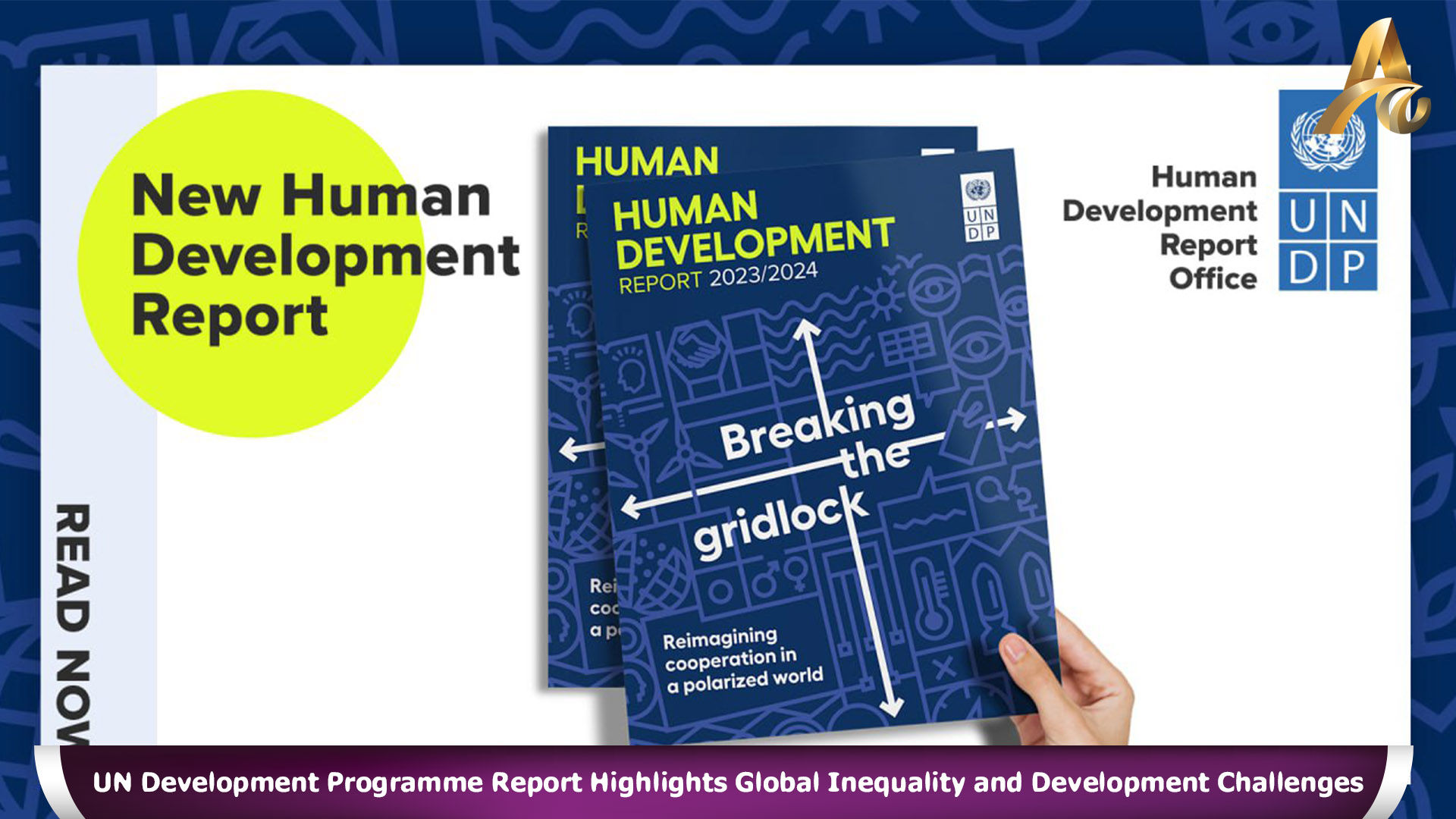Phnom Penh, March 14, 2024: A recent report by the United Nations Development Programme (UNDP) underscores the critical issue of uneven development progress worldwide, which exacerbates inequality, fuels political polarization, and demands urgent collective action. The 2023/24 Global Human Development Report, titled “Breaking the Gridlock: Reimagining Cooperation in a Polarized World,” presents a concerning picture: while the global Human Development Index (HDI) has seen a partial recovery, the progress is uneven and incomplete, leaving the poorest half of the population lagging behind.
Cambodia stands as a beacon of progress amidst these challenges, with two decades of remarkable growth averaging around 7 percent, catapulting the nation into one of the world's fastest-growing economies. From 1990 to 2021, Cambodia witnessed a fourfold increase in income per capita, a life expectancy rise of over 14 years, and an improvement in mean years of schooling from 2.4 to 5.1 years. Consequently, Cambodia's HDI surged by 56.9 percent, moving the country into the medium human development category. Despite these gains, disparities persist, aggravated by the COVID-19 pandemic, extreme climatic events, the cost-of-living crisis, and geopolitical tensions, causing a regression in Cambodia's HDI to its 2018 level.
The report highlights the growing concentration of economic power, noting that almost 40 percent of global goods trade is dominated by three countries. In 2021, the market capitalization of each of the top three tech companies exceeded the GDP of over 90 percent of countries. Achim Steiner, head of the UNDP, emphasized the widening gap in human development as a reversal of two decades of reducing inequalities. He pointed out the urgent need for global cooperation to address climate change, digitalization, poverty, and inequality, which are crucial for reducing polarization and restoring trust worldwide.
The report also identifies a 'democracy paradox,' where despite widespread endorsement of democracy, many support leaders who may undermine democratic processes. This paradox contributes to political polarization and inward-looking policies, hindering global cooperation on issues like decarburization, digital technology misuse, and conflict resolution. The record-breaking temperatures of 2023 and the challenges posed by artificial intelligence underscore the immediate need for united action.
Proposing solutions, the report calls for a new generation of global public goods in four areas: planetary public goods for climate stability, digital global public goods for equitable technology use, expanded financial mechanisms beyond traditional aid, and governance reforms to reduce political polarization and tackle misinformation. It argues for strengthening multilateralism to address the global nature of these challenges.
UNDP Resident Representative in Cambodia, Ms. Alissar Chaker, emphasized the opportunity for Cambodia to leverage its Pentagonal Strategy for smart, inclusive, and sustainable development, avoiding trade-offs between economic growth, social cohesion, and natural assets. She highlighted the importance of global cooperation and partnerships based on global public goods and effective international policymaking.
The report's key findings include:
All 38 OECD countries improved their HDI scores since 2019.
Over half of the 35 least developed countries (LDCs) that saw HDI declines in 2020 or 2021 have not recovered to their 2019 levels, indicating potential long-term setbacks.
Afghanistan and Ukraine experienced significant HDI losses, with Afghanistan's HDI regressing by ten years and Ukraine's reaching its lowest since 2004.
Research suggests that countries with populist governments exhibit lower GDP growth rates, with a 10 percent lower GDP per capita after 15 years compared to non-populist scenarios.
For the full report, visit https://report.hdr.undp.org/























